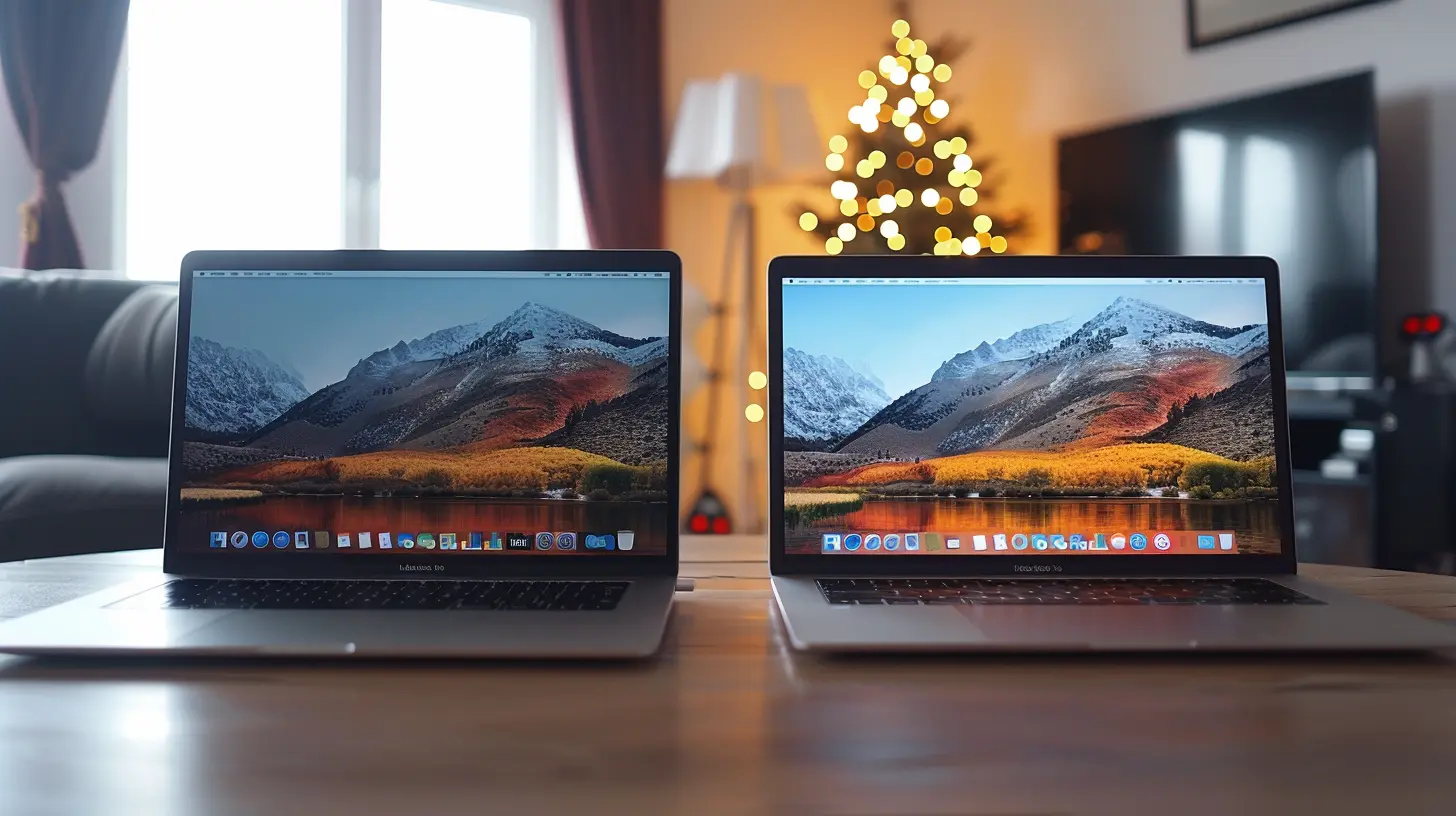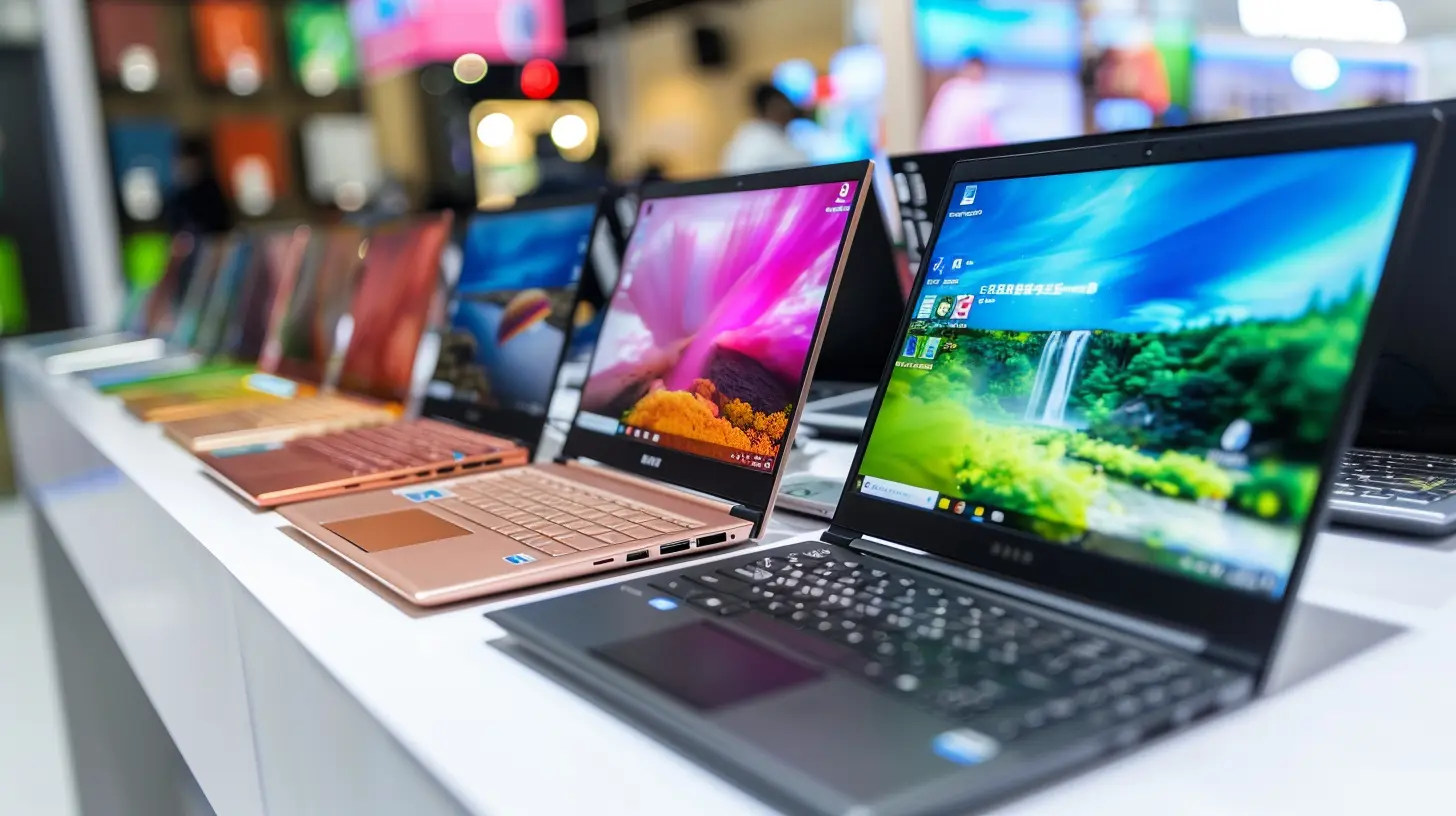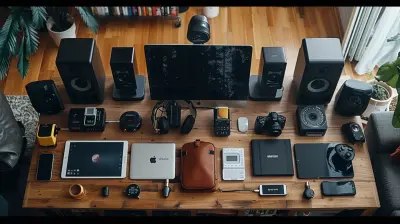Ultrabooks vs Laptops: What’s the Difference and Which Should You Buy?
14 August 2025
Let’s face it—buying a new computer isn’t as easy as it used to be. Between gaming rigs, tablets, Chromebooks, and everything in between, there’s a jungle of choices. But today, we’re going to tackle one of the more common dilemmas: Ultrabooks vs Laptops.
If you’ve wandered into a tech store or browsed online recently, you’ve probably seen sleek, razor-thin machines called “ultrabooks” sitting right next to bulkier traditional “laptops.” But here’s the kicker—aren’t ultrabooks laptops too?
Well, yes... and no.
In this article, we’ll break it all down in plain English—no jargon-heavy mumbo jumbo. Whether you're a student, working professional, digital nomad, or just someone needing a solid machine, stick with me. By the end, you’ll know exactly what each is, how they’re different, and most importantly—which one is the right fit for you.
What Exactly Is a Laptop?
Let’s start with the basics.A laptop is a portable personal computer. It’s been around for decades, evolving from brick-heavy monstrosities into the sleek powerhouses we see today. They come in all shapes and sizes—some are built like tanks for gaming, others are affordable and simple for web browsing or schoolwork.
Laptops usually come with:
- A full keyboard
- A built-in screen (ranging from 11 inches to 17+)
- A battery
- Ports aplenty (USB, HDMI, Ethernet)
- Versatile hardware configurations
From budget models under $300 to high-end behemoths over $2000, laptops are the generalist in the tech world. There’s a laptop for almost every kind of user.
So... What Is an Ultrabook?
Now here’s where things get interesting.An ultrabook is technically a type of laptop—but not just any laptop. The term "ultrabook" was coined by Intel back in 2011 as a marketing term for a very specific kind of notebook. The goal? Combine the portability of a tablet with the power of a traditional PC.
To qualify as an ultrabook, a laptop typically needs to:
- Be ultra-slim (under 0.8 inches thick)
- Weigh less than 3 pounds
- Have long battery life (often over 8 hours)
- Use SSD storage for speed
- Boot up quickly (thanks, SSD!)
- Use power-efficient Intel processors
So yeah, ultrabooks are like the sports cars of the laptop world—sleek, fast, and stylish. Brands like Dell XPS, MacBook Air, HP Spectre x360, and Lenovo Yoga are often in the ultrabook category.
The Main Differences: Ultrabook vs Laptop
Let’s put these two in the ring and see how they stack up. Imagine ultrabooks as those slim-fit jeans—tailored, light, and modern. Laptops? They’re your classic blue jeans—rugged, flexible, and comfortable.| Feature | Ultrabook | Laptop |
|----------------------|----------------------------------------|--------------------------------------|
| Portability | Super light and slim | Varies (Often heavier and thicker) |
| Performance | Great for most tasks, but not gaming | Offers everything from basic to high-end gaming |
| Battery Life | Excellent (thanks to efficiency) | Good, but depends on model |
| Price | Premium (usually $800+) | Wide range ($300 to $3000) |
| Cooling System | Limited (some struggle with heat) | Better airflow for high-performance use |
| Ports | Fewer (Some only have USB-C) | More options (USB-A, HDMI, etc.) |
| Upgradeability | Limited or none | Easier to upgrade (RAM, SSD, etc.) |
Performance: Who Wins the Power Game?
If you’re all about raw power—editing 4K videos, running simulations, gaming like a boss—you’ll most likely lean toward a traditional laptop. Many laptops offer discrete GPUs (graphics cards) and beefy cooling systems to handle intense workload and performance needs.Ultrabooks, while snappy and responsive, are built for efficiency, not brute strength. They’re perfect for professionals, writers, students, and travelers who need speed and responsiveness but not necessarily high-end graphics muscle.
Think of ultrabooks as Teslas—sleek, fast, and elegant. While traditional laptops can be like monster trucks—powerful, tough, but definitely not light.
Battery Life: Who Keeps Going?
Here’s where ultrabooks shine like stars. They’re designed with energy efficiency in mind, and due to their SSDs and low-power processors, ultrabooks often last 8 to 15 hours on a single charge. That’s enough juice for a full day of work, Netflix, and a bit of browsing before bedtime.Regular laptops? Some last just 4–6 hours unless you splurge on high-end models. If you're on the go a lot, the ultrabook wins this round hands-down.
Portability: Travel Light or Carry a Beast?
Let’s not sugarcoat it—ultrabooks are made to move. They fit in backpacks like a dream, don’t weigh your shoulders down, and are airplane-tray-table-approved. Ideal for commuters, digital nomads, students, and minimalists.Laptops, especially gaming or budget-friendly ones, can be chunky. Not ideal when you’re rushing through airport security or switching classrooms.
So, if you’re constantly on the go? Ultrabook.
Ports and Peripherals: Modern vs Traditional
This one’s a mixed bag.Ultrabooks often ditch traditional ports to stay slim. That means no Ethernet, few USB-A ports, and sometimes just a couple of USB-C or Thunderbolt ports. You might have to invest in dongles. Yeah, it’s a bit of a bummer.
Traditional laptops usually come packing: USB-A, USB-C, HDMI, even SD card slots and Ethernet. So, if you’re someone who uses external monitors, gaming peripherals, or legacy USB gadgets—laptops give you more plug-and-play flexibility.
Upgrade Options: Flexibility or Locked-In?
Planning to upgrade RAM or swap out for a bigger SSD in the future? Traditional laptops offer that flexibility. Many models come with accessible components for DIY upgrades.On the flip side, ultrabooks are usually sealed tight. RAM is soldered, SSDs are proprietary, and upgrades are almost never an option. What you buy is what you’re stuck with.
Design and Aesthetics: Sleek vs Functional
Let’s be real—ultrabooks look great. They’re modern, minimalist, and downright sexy. Brushed aluminum, edge-to-edge displays, backlit keyboards—the whole package screams high-end.Laptops? They vary. Some are stylish, others are clearly designed by engineers prioritizing function over form. If design matters to you (and you like working from coffee shops), ultrabooks are hard to beat in the style department.
Pricing: What’s the Damage?
Here’s the truth—ultrabooks cost more. You’re paying for premium materials, portability, and that all-day battery life. Prices typically start around $800 and can easily cross the $2,000 mark.Regular laptops have a much broader price range. Need a simple machine under $500? Plenty of options. Want a desktop replacement with a killer GPU? Expect to spend $1,500 or more, but it’s all there.
So, if your budget is tight, a traditional laptop gives you more bang for fewer bucks.
Who Should Buy an Ultrabook?
You should seriously consider an ultrabook if:- You travel frequently or commute to work/school
- You value battery life and portability
- You don’t need heavy-duty performance (like 3D rendering or AAA gaming)
- You want a clean, professional-looking device
- You’re okay spending a little more for quality and aesthetics
Ultrabooks are built for people who need performance, not power. For writers, business professionals, entrepreneurs, remote workers, and college students—they’re practically perfect.
Who Should Buy a Laptop?
You should lean toward a traditional laptop if:- You’re a gamer, video editor, or creative with high-performance needs
- You want upgradeable hardware
- You need more ports and connectivity
- You're on a tighter budget
- You don’t mind a bit of bulk
If you’re someone who wants to future-proof your machine with upgrades—or someone who likes to plug into multiple screens and accessories—a traditional laptop is your top pick.
In Conclusion: Ultrabook or Laptop—Which One Is Right for You?
Alright, let’s wrap it up.Choosing between an ultrabook and a traditional laptop boils down to how you use your laptop.
Need something thin, light, stylish, and marathon-level battery life? Ultrabook all the way.
Need raw power, ports, upgrade options, and don’t mind a bit of heft? Traditional laptop’s got your back.
There’s no “one-size-fits-all” answer—but that's the beauty of it. You know your needs better than anyone else. Use this breakdown to match your lifestyle to the right machine. And whatever you choose—make sure it serves you, not the other way around.
Happy laptop hunting!
all images in this post were generated using AI tools
Category:
UltrabooksAuthor:

John Peterson
Discussion
rate this article
1 comments
Marlowe Diaz
Ultrabooks excel in portability, while laptops offer versatility.
August 16, 2025 at 12:27 PM

John Peterson
That's a great summary! It highlights the key strengths of each device, making it easier for readers to decide based on their needs.


